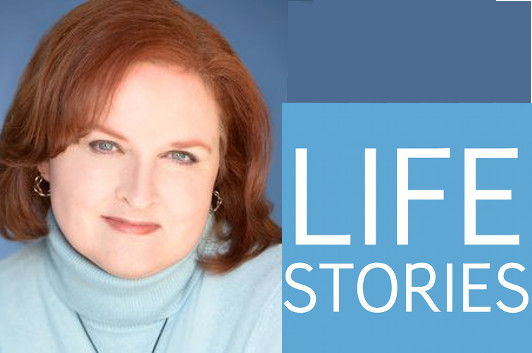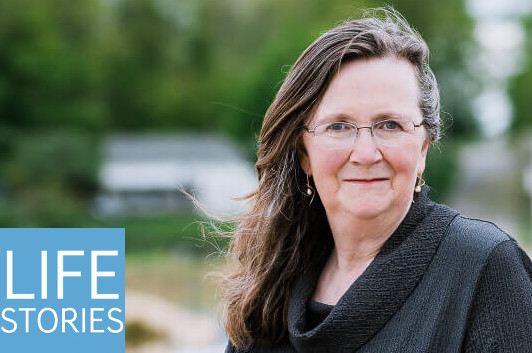Life Stories #103: Michelle Stevens
I first met Michelle Stevens in 2014, back when I was an acquiring editor for a startup book publishing company. We took a meeting with her and her agent after reading the proposal for her book, which combined a memoir about surviving childhood sexual abuse with solid explanations of the psychology involved in the dissociative identity disorder that Stevens, among others, developed as a result of that protracted trauma. I was impressed by the proposal, and the meeting, but I wasn’t the one who got to make those sorts of decisions, so we ended up passing on the book—fortunately, Scared Selfless wound up with a great publisher who was able to support the book in a way it deserved, so chances are that, sometime in 2017, you might have seen her in a magazine you were reading, or on a daytime talk show…
Happily, she and I were able to keep in touch, so when she came to New York City to do some media, we were able to get together for a frank conversation about—among other things—what dissociative identity disorder is (and what it isn’t), about how surviving her trauma motivated her career in psychotherapy, and about what it’s like to come forward with a story about surviving sexual abuse in a country where, let’s face it, the outcome of the most recent presidential election suggests our concern about sexual assault is not what it should be. I’m delighted to finally be able to share this conversation with you.
Listen to Life Stories #103: Michelle Stevens (MP3 file); or download this file by right-clicking (Mac users, option-click). Or subscribe to Life Stories in iTunes, where you can catch up with earlier episodes and be alerted whenever a new one is released. (If you’re already an iTunes subscriber, please consider rating and reviewing the podcast!)
photo courtesy Michelle Stevens
25 July 2018 | life stories |
Life Stories #102: Elizabeth W. Garber
I spoke with Elizabeth W. Garber the Monday right after Father’s Day, an apt time to be discussing her memoir, Implosion. It’s a story about growing up in Cincinnati in the 1960s and early ’70s in a glass house designed by her architect father—years that were so unsettling to live through that when Garber began speaking to her mother and her two brothers about the abuse they all endured, they initially refused to have anything to do with the topic. Which didn’t exactly surprise her, because it was the last thing she ever intended to write about, either:
“I’d been a poet for years and I wrote about living in Maine, and I wrote about being a mom… and I’d written almost nothing about my childhood. Every now and then, a little something would sort of squeak through, but I had no interest. I didn’t want to go back there, I didn’t want to really talk about or remember that part of my life.
“Then I had heart surgery, and afterwards, it was like this stream of memory that just started coming up, day after day. And I have a commitment, that when ideas or thoughts come up, that I write it. So I just started writing, and it started out with being a little girl in the village and living in an old Victorian house, and every day I wrote, for about an hour a day, for the next two or three years.
“I ended up writing just about every memory I had from my childhood into my twenties. I kept thinking, I don’t want to write about my dad, or all of this, but it just felt like that was what I had to do, so I just kept going. And then i started asking my mother and brothers for stories and details, and they were like, I don’t want to go there…”
During our conversation, Garber and I discussed how she had mentally and emotionally blocked out her father’s most invasive and abusive behavior while it was happening, and about how friends and neighbors, and even her father’s therapist, turned a blind eye to the blatant signs of his mental and emotional condition. We also discussed how her father’s most famous project became a landmark metaphor for all the shortcomings of modernist architecture… along with the more personal meaning it accrued within the family.
Listen to Life Stories #102: Elizabeth W. Garber (MP3 file); or download this file by right-clicking (Mac users, option-click). Or subscribe to Life Stories in iTunes, where you can catch up with earlier episodes and be alerted whenever a new one is released. (If you’re already an iTunes subscriber, please consider rating and reviewing the podcast!)
photo courtesy Elizabeth W. Garber
24 July 2018 | life stories |



 Our Endless and Proper Work is my new book with Belt Publishing about starting (and sticking to) a productive writing practice.
Our Endless and Proper Work is my new book with Belt Publishing about starting (and sticking to) a productive writing practice. 
